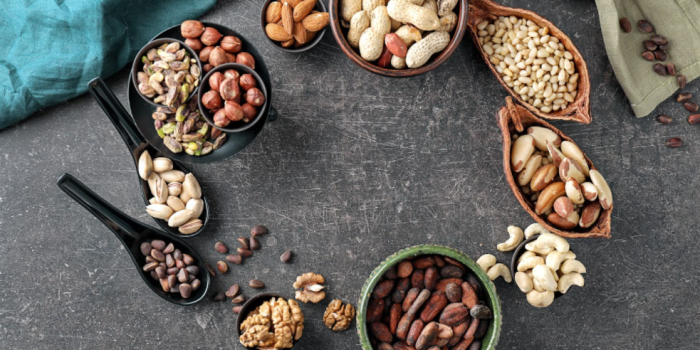Extensive evidence shows us that an adequate intake of omega 3 from plant foods in the form of alpha-linolenic acid or ALA (found in nuts such as walnuts, and other foods like soybeans, flax seeds, chia, algae and hemp seeds) and from marine sources (EPA and DHA) are linked to a significant reduction in the risk of coronary heart disease. The first of these fatty acids (ALA) is the only one of the omega 3 family that is considered essential. Therefore, it is compulsory that it is included in our diet through the foods that we intake. Fortunately, there are several foods that we can get it from.
Omega 3 fatty acids confer cardiovascular benefits through different mechanisms such as reducing triglycerides and exerting anti-inflammatory effects and many more.
Currently, with covid-19 as a primary concern, there are also reviews such as the one conducted by Hathaway et al. (2020) that examine the importance of maintaining an adequate intake of omega 3 fatty acids to promote better immune function, reduce viral invasion and, in this way, possibly reduce the severity of the disease in question. However, the benefits do not stop there since omega 3 fatty acids have been said to have preventive effects against different types of diseases such as diabetes, cancer, neurodegenerative diseases, macular degeneration, in addition to cardiovascular disease. Each cell in our body has a thin membrane made up of two layers of lipid molecules that needs to be functional to facilitate physiological responses. The lack of omega 3 fatty acids in the diet can change the composition of the cell membrane; hurting us greatly, hence the importance of getting your recommended daily intake.
What is the Daily Recommended Amount of Omega 3
- Institutions such as the American Heart Association recommend consuming at least 500mg a day of omega 3 fatty acids (EPA + DHA)
- Other institutions such as EFSA place the recommendation at 250mg / day
- While the dietary reference intakes for linolenic acid developed by the National Academy of Medicine establish intakes of 1.6g ALA for adult men and 1-1.1g ALA for adult women
Among nuts, walnuts provide us with 9.08g of ALA per 100g. A tablespoon of chia or flax seeds provides us with almost 5g and 6g of ALA respectively. However, in the case of seeds, it has been said that applying techniques such as soaking for at least 2 hours increases the bioavailability of the different fatty acids so that our body can take better advantage of them.
Therefore, a serving of nuts a day (around 30g) together with the consumption of oily fish at least 2-3 days a week and other foods would cover the recommended intake. In case of being vegan or vegetarian (patterns that exclude fish), guaranteeing the daily presence of foods rich in ALA becomes vital. However, the use of EPA and DHA supplements may also be helpful in this context as well as the daily intake of nuts and dried fruits as explained below.
How Nuts Can Benefit Us
Nuts present different macro and micronutrients of great interest that make up their food matrix and whose benefits extend to their effects on appetite control without showing negative influences on body weight as is commonly believed. Nuts are rich in monounsaturated acids, fiber, proteins, vitamins, minerals, and bioactive compounds such as phytosterols and polyphenols.
The beneficial effects of nuts are due to the harmonious effects of all these nutrients together and not just alpha-linolenic acid alone. Another benefit of consuming nuts is that due to the fact they are an energy-dense food they can help keep you fuller for longer and therefore are a great way to replace the consumption of ultra-processed foods between meals.










